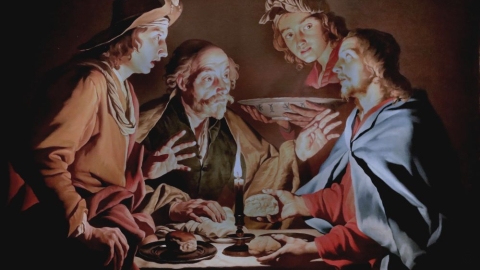China: Communist Forgers Reinvent the Gospel

In China, the Communist authorities are imposing on the faithful in certain regions, a falsified version of the life of Christ, in which the Lord presents Himself as a sinner.
With an astonishing mimicry effect, the situation in China increasingly resembles the story written by Georges Orwell in his anticipatory novel 1984.
While English fiction presents a totalitarian Party forcing individuals to accept its constantly revised version of history, the reality at work in the Middle Kingdom is that of a communist power rewriting the life of Christ.
On September 22, 2020, the Ucanews agency, critical of the Beijing regime, reported the publication of a school textbook containing an odious falsification of an episode in the life of Our Lord.
The work, Professional Ethics and Law Enforcement, is published by University of Electronic Technology Sciences Publishing, a service entirely owned by the Communist Party of China (CCP).
There is a truncated telling of the story of the woman caught in adultery (Jn. 8:1-11). Instead of a Christ who forgives her sins in saving and sparing her, the Chinese narration explains that the Lord began to stone her, saying: “I too am a sinner, but if the law had to be applied by men without fault, then this law would be futile.”
Within the community of mainland China Catholics, the outrage is great: “I want everyone to know that the Chinese Communist Party has always tried to distort holy history, to slander our Church, and to incite people to hate her,” a faithful protested on social networks.
Paul, another Chinese Catholic, explains that there are many similar distortions of Christian stories and of Church history, despite the protests of the faithful, which remain ineffective: “The same pattern is repeated every year, but the Church never responds, nor does it receive the respect and the apologies it deserves,” he said.
Another devotee, who runs a Catholic social network, laments that the manual’s content violates religious beliefs, and says its authors and editors should correct it and publicly apologize.
“We hope that the ecclesiastical authorities will speak up and speak on behalf of the Church,” she hopes. A very slim hope, because the more the month advances, the more the noose tightens around the Catholic Church of China.
A Church which struggles to see, on the spot, the benefits of the provisional agreement on the appointment of bishops between the Holy See and Beijing, signed on September 22, 2018, and which should be renewed next month.
(Source : Ucanews . FSSPX.Actualités)



